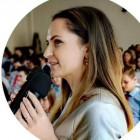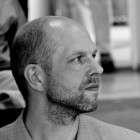Agenda OEB Global 2022
- Wednesday, Nov 30
- Thursday, Dec 1
- Friday, Dec 2
- Full Day Sessions
- Morning Session
- Afternoon Session
- Late Afternoon Session
- Academic Sector
- Artificial Intelligence
- Augmented Reality
- Badges
- Blended
- Certification
- Cloud
- Copyrights
- Data
- Digital Media
- E-Portfolio
- Ed-Tech
- Language Learning
- Platforms
- Training
- User Generated Content
- Virtual
- Workplace
- Academic Sector
- Artificial Intelligence
- Augmented Reality
- Badges
- Blended
- Certification
- Cloud
- Copyrights
- Data
- Digital Media
- E-Portfolio
- Ed-Tech
- Language Learning
- Platforms
- Training
- User Generated Content
- Virtual
- Workplace
- Discovery Demo
- Discussion and Debate
- Interactive Breakout Session
- Plenary
- Pre-Conference Workshop
- Presentation
- Special Focus Session
- Spotlight Stage
- Tech Lab
- Reset all
Creating an Interoperable International Digital Ecosystem for Education
Pre-Conference Workshop - M1
M1 Morning Event
Date Wednesday, Nov 23 Time – Room Check Price: free of charge Status: fully booked
Creating an Interoperable International Digital Ecosystem for Education

Christien Bok
Innovation Manager of Education, SURF
Christien Bok is Innovation manager education at SURF. She aims to support collaboration between higher education institutions in the field of IT innovation in order to improve student success and the quality of education. She is an advocate for the protection of public values in education and research. She is convinced that international agreements on standards and architecture are a key to organizing education efficiently and flexibly, nationally and across borders. Christien designed various national innovation programs, including the Acceleration Plan (16M) and the Digitization Impulse for Education (600M). Christien studied Dutch literature at Utrecht University. She worked for the Dutch Foundation for Literature and at The Netherlands Organization for Scientific Research (NWO). At NWO she was responsible for a research program in which IT researchers and heritage managers worked together to make heritage available digitally.
Links

Evelien Renders
Adviser International Education, SURF, Netherlands
Evelien Renders facilitates international collaboration in higher education at SURF, the cooperative organisation for IT in Dutch education and research. Complex processes, manageable data, and interoperability between systems make her happy. She keeps track of international developments in student mobility and other logistical processes. In doing so, she contributes to flexible and agile education, both in the Netherlands and abroad. With a commitment to public values and open standards, Evelien advocates for communication, trust, and collaboration between IT stakeholders in higher education.
Digitalisation is having an increasing impact on education. COVID-19 is an accelerator of the digital transition of education. Digitisation will contribute to increasing the quality of education and the possibility of greater flexibility in the curriculum. Flexibility opens the doors to, for example greater (international) student mobility.
This pre-conferece workshop will focus on the opportunities as well as on the risks of interoperability in education. It takes place within the frame of the European Digital Education Hub (EDEH - https://education.ec.europa.eu/focus-topics/digital-education/action-pl…), which was publicly launched by the European Commission in June 2022 and offers various opportunities for community members to get actively involved. This community workshop is an example of activities within the Hub.
This pre-conference workshop is organized the day after an EDEH community gathering will take place. A maximum of 15 OEB participants will be able to attend this workshop and will be selected on a first-come-first-served basis. The workshop will build on the discussions of the previous day and participants will reflect together on the overall topic.
The goal of the workshop is to create a concrete blueprint for further progress on the topic of educational interoperability.
Outcomes
- Reflection on the opportunities and risks of interoperability in education.
- Networking of stakeholders at European level.
- A blueprint for further work on the topic of interoperability.
Agenda
- 09:00-09:30 Welcome
- 09:30-10:00 Community members of the European Digital Education Hub present the results of their internal workshop taking place on the preceding day
- 10:00-11:15 Discussion of the results; overview of the state-of-affairs of education systems in Europe and their (lack of) interoperability, plus areas where we see potential for improvement.
- 11:15-11:45 Coffee break
- 11:45-13:00 Next steps: blueprint for a way forward; what is needed and who are the main actors who can make this happen?
Audience
Participants from all sectors are welcome to attend the community workshop, but it is likely that the workshop is more interesting for those active in Higher Education. Participants should have a specific interest in the topic and ideally a direct link between the workshop topic and their profession. Those who are involved in European University Alliances may be particularly interested in participating in this workshop.
Level: intermediate
Speexx Exchange – The Event for Curious HR and L&D Minds
Pre-Conference Workshop - FD1
FD1 Full-day Event
Date Wednesday, Nov 23 Time – Room Bellevue Price: free of charge Status: places available
Speexx Exchange – The Event for Curious HR and L&D Minds
Workshop leader

Laura Overton
Analyst - Explorer - Writer - Facilitator, Learning Changemakers, United Kingdom
I am an experienced international speaker, author and facilitator with a passion for exploring, challenging and sharing. I believe that the role of learning leaders in the changing workplace is to unlock the potential of business and people. My goal has always been to help learning leaders ensure that their organisations are equipped and ready through outcome-led and evidence informed practice.
Together we will co-create the future of learning - one where learning leaders will become business critical as they uncover new ways to add value. As the founder of Towards Maturity- I led a global research programme for 15 years, bringing a community of practitioners, policy makers, experts and suppliers together to investigate how learning innovation delivers business value.
I continue to investigate, to explore , to communicate insights and facilitate collaborative change in the industry through workshops, coaching and sounding board work via #LearningChangemakers and as co-founder of Emerging Stronger.
Tracking the L&D learning innovation journey since 2003, I have authored/ co-authored of over 70 major research reports and, as a regular contributor to industry publications I have written over 300 articles. I continue to play an active role in research working with the CIPD and other significant industry bodies.
As an industry change maker, I regularly share good practice findings as a keynote presenter at conferences around the globe and through masterclasses, webinars and seminars. I have served on several advisory boards including the original LPI Capability Map, the CIPD Professional Map and Learning boards, the Online Educa Global Council and the original Distributed Electronic Learning Group for the UK government.
I am an academic fellow of the CIPD, a fellow of the RSA and the first female recipient of the Learning and Performance Institute’s Colin Corder Award for outstanding achievement. I was also the first recipient of the Learning Technology award for outstanding achievement and regularly appear in the top influencer lists for our industry.
I am always willing to work with LearningChangemakers across the industry so please contact me if you would like to find out more about my writing, facilitation, coaching or soundingboard work.
Links
Speakers

Jeremy Blain
Founder and CEO, Performance Works International, United Kingdom
Jeremy is the Chief Executive of PerformanceWorks International (PWI), a company that helps organizations, executive boards, leaders, and teams succeed in the digital climate amidst disruption, opportunity, and uncertainty.
He is also the author of the multi-award winning, international #1 best seller, ‘The Inner CEO – Unleashing leaders at all levels’ and has been named International GameChanger© of the year for 2019, 2020, and, for the first time ever, a third consecutive time in 2021 in the ACQ5 Global Awards for his work on digital transformation, HR transformation, and workforce transformation.
In his keynote session, Jeremy will tackle the challenges faced by modern leaders, explore how leadership is changing, and define strategies to help you empower your people and achieve your own leadership aspirations.

Ugo Caruso
Digital Learning Specialist, United Nations System Staff College, Italy
Ugo is Digital Learning Specialist and Portfolio Manager at the United Nations System Staff College (UNSSC) Knowledge Centre for Leadership and Management (KCLM).
He is the coordinator of the UNSSC’s Blue Line Global Learning Hub – a unique learning hub open to all UN personnel for personalized and self-directed learning. At KCLM he is also responsible for the development of UNSSC’s learning ecosystem and user experience design.

Stella Collins
Chief Learning Officer, Stellar Labs, Belgium
Stella Collins MSc FITOL is co-founder and Chief Learning Officer at Stellar Labs, author of ‘Neuroscience for Learning and Development’, Linkedin Learning author and one of the Brain Ladies. She has a clear understanding of the challenges faced by organisations in upskilling and reskilling their people, especially with digital change being so high on the agenda.
She and her team pragmatically apply principles from neuroscience and psychology to consult, design and build practical, performance focused technology and solutions with measurable ROI. She has trained 1,000s of learning professionals in brain friendly principles in more than 20 years in L&D.
Links
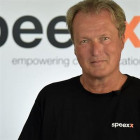
Armin Hopp
Gründer und Vorstand , Speexx, Germany
DEUTSCH:
Armin Hopp ist Mitgründer und Vorstand von Speexx, der weltweit führenden digitalen Plattform für Sprachentraining und Online-Sprachtests in Unternehmen. Außerdem ist er Präsident des International Council on Badges and Credentials (ICoBC). Seine Leidenschaft gilt der Familie, dem digitalen Lernen, EdTech, HR-Tech, Learning Transformation, Gitarren - und Speexx.
ENGLISH:
Armin Hopp is co-founder and president of Speexx, the world’s leading digital language skills testing and learning platform. He is also president of the International Council on Badges and Credentials (ICoBC) He´s passionate about family, digital learning, EdTech, HR tech, learning transformation, guitars – and Speexx.
Links

Dinye Hernanda
Senior Learning and Development Manager, HEYJOBS, Germany
Dinye Hernanda is an award-winning Learning & Development Manager, highly experienced in establishing L&D departments in hypergrowth startups. Having worked as an innovation manager in top german companies, Dinye brought her entrepreneurial and creative mindset to L&D, often juggling the role of a trainer, facilitator, coach, and problem solver - all at once. A Berlin-based, passionate community builder, she regularly shares her learnings through a global community called L&D Shakers.

Stefaan van Hooydonk
Founder, Global Curiosity Institute, Belgium
Before launching the Global Curiosity Institute in summer 2020, Stefaan van Hooydonk built a distinguished career as CLO, learning innovator and strategist for companies like Cognizant (UK), Philips (the Netherlands), Agfa (Belgium), Nokia China and Finland), Aramco (Saudi Arabia), CEIBS (China) and Flipkart (India). In his last role, Stefaan was responsible for the development of Cognizant’s 300K employees. The purpose of the Global Curiosity Institute is to assist organisations foster a mindset of curiosity to inspire them to keep discovering and innovating. Next to this, the institute is also doing research on workplace curiosity. Stefaan launched an individual curiosity profiler as well as an organisational curiosity climate diagnostic. He is consulting with teams and organisations on leadership and curiosity, as well as on improving workplace curiosity with teams and organisations. www.globalcuriosityinstitute.com
Links

Patrick Veenhoff
Senior Data Education Architect, Swiss Re
Patrick Veenhoff is a Human Capital Consultant with over 20 years of professional experience in leading organisational development initiatives, designing and implementing award-winning corporate learning and development programs, and driving transformations in the digital economy for numerous multinational companies.

Jo Cook
Live online learning specialist, Lightbulb Moment, United Kingdom
Jo Cook is a speaker, instructional designer and classroom facilitator who specialises in virtual classrooms, webinars and live online learning technology. Jo’s passion is in helping and supporting teams, professionals and organisations embrace the benefits of the virtual classroom. Jo’s background includes: further and higher education; the charity sector; small and large organisations, including CNN News and Bupa International.
Through her company Lightbulb Moment, Jo has specialised in training learning professionals about virtual classroom design and delivery since 2013 and has spoken on various topics at conferences such as Learning Technologies, OEB and keynoted for Colleges Wales and E-learning Fusion.
Links
Speexx Exchange is the event for curious HR and L&D minds who want to make a difference.
Chaired by industry thought leader Laura Overton, this event brings together professionals from over 20 countries:
-
Reality Check
We bring together HR and L&D leaders from across the globe for a day of inspiration, hands-on workshops and plenty of networking amongst peers in Germany’s capital.
-
Facts & Data
Hear the latest results from Europe’s leading independent benchmark research and return to work with brand-new data insights to underpin your team’s success.
-
Community of Knowledge
Speexx Exchange is an international community of global thought leaders, friends, and customers. We define what drives success in corporate learning, HR and business.
-
Digital Transformation
In-depth best practices to understand how you can successfully transform your learning and HR organization to deliver real business value.
Join us and be inspired by leading keynote speakers and a variety of best practice examples!
AGENDA
- 8.30 am CET - 9.15 am CET | Breakfast & Registration
- 9.15 am CET - 9.30 am CET | Welcome to Speexx Exchange
Introduction by Laura Overton, Jo Cook and SpeexxWelcome and introductions. Join us as Laura sets the scene for the day and outlines why mindset and curiosity are key when it comes to embracing rapid change
Laura Overton | Conference Chair
Jo Cook | International Speaker & Director and Digital Facilitator | Lightbulb Moment Armin Hopp & Speexx - 9.30 am CET – 10.15 CET | Embrace the Shift in Business
Empowering People – Unleashing Leaders at All LevelsExpectations surrounding management and leadership have changed. Experience the #1 Amazon Best-Selling author on how to empower ourselves and others to lead.
Jeremy Blain | Keynote Speaker | Performance Works International
- 10.15 am CET – 10.45 CET | Coffee Break
- 10.45 am CET - 11.45 am CET | Embrace the Shift in Business
Adapting and Developing Learning Strategies at Scale:
Insights from the United Nations and Swiss Re Together we will explore what skills our organizations need today and how we build them. How do large global organizations adapt to changes in employees’ learning expectations and habits? And what are their approaches to mental health, skills, and data? Join us to gain insights from the latest learning strategies and tactics at the United Nations and Swiss Re.
Ugo Caruso | Digital Learning Specialist | United Nations System Staff College
Patrick Veenhoff | Human Capital Consultant | Swiss ReInteractive session: Our big question for this session: How can we build organisations that people want to work in?
- 11.45 am CET – 12.00 CET | Coffee Break
- 12.00 pm CET - 1.00 pm CET | Embrace the Shift in Talent and Tech
The Speexx Exchange Fireside ChatIn an environment where talent comes at a premium, on-the-job development is emerging as a key personal and organizational growth strategy Join us to explore how technology, AI and data are impacting how we source, retain, and develop talent. The panel will explore how important it is to retain a human touch in a metrics and tech-driven world and provide insights into their own experiences working at the cutting edge of learning technology.
Our big question for this session: How can we harness technology to build skill and confidence at scale? Get involved: Includes Q&A, both online and offline
Laura Overton | Conference Chair | Moderator
Armin Hopp | Founder | Speexx
Stella Collins | Co-Founder and Chief Learning Office | Stellar Labs - 1.00 pm CET - 2.15 pm CET | Lunch Break
- 2.15 pm CET - 4.00 pm CET | Embrace the Shift in Me!
Workshop SessionHow can we (re-)kindle our personal curiosity and experiment more?
One interactive session. Two key contributors.
Includes breakout rooms and interactive workshopsThe Power of Curiosity
Curious organizations are winning organizations. They are intentional about how they balance exploration and exploitation. Curious organizations are more successful than incurious ones, especially in times of change. In this interactive session “The Curiosity Manifesto” author Stefaan will contribute his experience and ideas to explore what we know about curiosity, why it is important in our professional life and our organizations and reveal a few tips and tricks at how to improve.Stefaan van Hooydonk | Founder | Global Curiosity Institute
Unleashing Innovation and Curiosity Through a Diverse Learning Culture
Diverse organizations grow quicker and outperform homogeneous organizations by every metric that matters in business. But what does it take to build a truly inclusive learning culture and embed DEIB principles into a company’s very DNA? Join 30 under 30 Learning nominee Dinye, as she talks us through her work in diverse hypergrowth startups.Dinye Hernanda | Senior Learning and Development Manager | HeyJobs
- 4.00 pm CET | Cocktail Hour
FD2 Full-day Event
Date Wednesday, Nov 23 Time – Room Charlottenburg III Price: 170.00 € Status: places available
Ethics, Analytics and the Duty of Care

Stephen Downes
Researcher, National Research Council Canada, Canada
Stephen Downes works with the Digital Technologies Research Centre at the National Research Council of Canada specializing in new instructional media and personal learning technology. His degrees are in Philosophy, specializing in epistemology, philosophy of mind, and philosophy of science. He has taught for the University of Alberta, Athabasca University, Grand Prairie Regional College and Assiniboine Community College.
His background includes expertise in journalism and media, both as a prominent blogger and as founder of the Moncton Free Press online news cooperative. He is one of the originators of the first Massive Open Online Course, has published frequently about online and networked learning, has authored learning management and content syndication software, and is the author of the widely read e-learning newsletter OLDaily.
Downes is a member of NRC's Research Ethics Board. He is a popular keynote speaker and has spoken in three dozen countries on six continents.
Links
This session reports on a comprehensive study of ethical issues in learning analytics and related technologies. We begin by looking at the applications of artificial intelligence and analytics in learning technology, describing in a structured way what decisions we actually make when we apply artificial intelligence, analytics, and neural networks to teaching and learning. We also survey the ethical issues that have arisen in the field, for example, bias in algorithms, justice and fairness, diversity and equity, bad actors and data manipulation, and a range of other concerns. Then we apply the ethical dimension to all of this, asking how we determine what is ethical and what is not. We look at ethical codes, ethical theories and principles, and finally, ethics as a duty of care.
Learning Outcomes
- Enumerate a broad range of benefits and risks arising from the use of analytic technologies in learning and development.
- Describe how these issues arise at various points in the learning analytics workflow.
- Evaluate how these issues, and potential solutions to them, are proposed by various ethical theories, principles and codes.
- Describe an ethical approach to learning analytics based in practitioner expertise and sentiment of care.
Thinking Bigger and Broader: Specifying a Curriculum Design Competency for L&D Professionals
Pre-Conference Workshop - M2
M2 Morning Event
Date Wednesday, Nov 23 Time – Room Tiergarten I/II/III Price: 90.00 € Status: places available
Thinking Bigger and Broader: Specifying a Curriculum Design Competency for L&D Professionals

Saul Carliner
Professor, Concordia University, Canada
Saul Carliner is a Professor and Chair of the Department of Education at Concordia University in Montreal, where his research focuses on the design of instructional and informational materials for the workplace, the management of groups that produce them, and related issues of policy.
Also an industry consultant, Carliner has provided strategic advice, and conducted workshops and evaluations for organisations like Alltel Wireless, Boston Scientific, PwC, ST Microelectronics, and several government agencies. He is the author of the best-selling Training Design Basics, award-winning Informal Learning Basics, and co-author of Career Anxiety: Guidance Through Tough Times, The e-Learning Handbook, and An Overview of Training and Development.
He is past President of the Canadian Network for Innovation in Education, a Fellow of the Institute for Performance and Learning, past editor of the IEEE Transactions on Professional Communication, and a Fellow and past international president of the Society for Technical Communication.
Links
How does designing a collection of instructional programmes (a curriculum) differ from designing an individual one? Which competencies do Learning and Development professionals need to design curricula? How do these competencies differ from those needed to design individual programmes?
In this pre-conference workshop, participants experientially explore the answers to these questions. Specifically, participants engage in a process of working through these issues and, in the process, explore the distinctions between curriculum and programme design, while exploring such concepts as learning architecture, learning experience design, information architecture, information design, media selection, format selection, and strategic thinking.
Use the knowledge gained and competencies identified in this workshop to devise approaches to curriculum and programme design within your own organisations!
Background
This workshop emerges from a project to revise the Competencies for Learning and Development Professionals, the official competency model of the Institute for Performance and Learning (formerly Canadian Society for Training and Development) and the basis for the certification program offered by the organisation.
This competency model is intended as a single, general characterisation of the work of the profession of workplace learning. The most recent update to these Competencies (a process overseen by the workshop facilitator) saw a split of the competency area Designing Learning into two: Designing Curricula and Designing Learning Experiences, as well as the addition of a new competency area, Partnering with Clients.
Among the specific issues that arose when considering the competency area for designing curricula, we included not only the obvious ones of distinguishing curriculum and programme design and issues of learning architecture and learning experience design, but also related competencies like information architecture, information design, media selection, format selection, and strategic thinking; the overlap between instructional and informational projects; the differing complexity of curriculum and program design and related career implications.
Outcomes
Participant Benefits:
Rooted in the issues and debates that arose when devising the Designing Curricula competency as a basis, this workshop provides participants with an opportunity to define this competency themselves, distinguish it from designing individual programmes, and consider how they might integrate this competency into their own organisations.
Key take-aways:
- Describe the competencies needed to design curricula or collections of instructional programmes.
- Distinguish the design of curricula from the design of individual learning experiences.
- Suggest the implications of the division to jobs and career progressions in the field.
Agenda
- 10:00-10:45 Interactive activities to clarify the designing curricula competency
- 10:45-11:45 Discussion of key issues and presentation of evidence from the literature regarding curriculum design in several contexts, including the Designing Curricula competency of the Institute for Performance and Learning
- 11:45-12:15 Coffee Break
- 12:15-13:00 Inviting participants to consider how they might integrate this material into their own organisations, including job descriptions, design and development procedures, and career paths for learning professionals.
Audience
- Specialists in credentialing and competency modelling.
- Instructional designers and developers, learning architects and lead designers, and their managers.
- This session is likely to be of interest to people in all sectors of education that hire instructional designers.
Level: intermediate
Transforming In-Person to Remote Activities: Setting the Stage for Improved Virtual Collaboration
Pre-Conference Workshop - M3
M3 Morning Event
Date Wednesday, Nov 23 Time – Room Charlottenburg I Price: 90.00 € Status: fully booked
Transforming In-Person to Remote Activities: Setting the Stage for Improved Virtual Collaboration
Workshop leaders

Bailey Lo
Program Coordinator, Biomedical Visualization and Communication Certificate, University of British Columbia, Canada
Bailey Lo, BSc, is the Program Coordinator for the UBC Biomedical Visualization and Communication (BMVC) certificate and is a member of the Hackspace for Innovation and Visualization in Education (HIVE).
Bailey's career started out in pursuit of becoming a healthcare provider, training as a paramedic and later studying midwifery. However, Bailey is most at home when supporting other learners to succeed and engage with their studies and transitioned from healthcare to education. She's passionate about making biomedical knowledge accessible to students from any background and believes a classroom—virtual or not—should be a place of empowerment and self-discovery.
Bailey holds a Bachelor of Science from Queen's University, Canada and is currently a student in the Master of Educational Technology program at UBC, Canada.
Links

Patrick Pennefather
assistant professor, The University of British Columbia, Canada
I am an Assistant Professor co-appointed with UBC Theatre and Film and at the Master of Digital Media Program in Vancouver Canada, teaching, mentoring, supervising graduate and undergraduate students, and conducting research on phenomena related to the experiences of extended realities. Every course that I teach has some element of project-based learning that is integrated either on its own or in collaboration with other courses and colleagues. I have mentored/supervised over 200 graduate students on 45 client-based digital media projects, many of them Mixed Reality Projects. My current teaching, workshopping and project supervision within immersive technologies, creativity, sound, human-centered design and improvisation can be defined as Mixed Reality and virtual experiences.
In all project-based learning courses, my goal is to support learners in developing 21st Century skills and competencies that continue to build on their innate capacities to be creative, collaborative and manage their own learning. Learner interactions are informed by ongoing research into collaborative practices, project-based learning, mentoring, self-regulation, rapid prototyping, agile software development, and a commitment to bridging the gap between what I design and teach, with what is requested by a rapidly changing, team-based digital media industry.
Links
Speakers

Claudia Krebs
Professor of Teaching, UBC Faculty of Medicine, Canada
Dr. Claudia Krebs is a Professor of Teaching at the University of British Columbia where she teaches neuroanatomy and gross anatomy. She has a keen interest in working with emerging technologies to leverage their potential for the classroom. In 2017 she created the HIVE (Hackspace for Innovation and Visualizations in Education) - a multidisciplinary space for innovation in biomedical education. She has received numerous teaching awards and in 2021 she was named a Fellow of the American Association for Anatomy, a recognition of the broad impact her work has had on the anatomy community.
In this 3-hour facilitated workshop, participants will engage with in-person activities that will then be transposed to a remote online environment. Each activity is intended to support team-based work and includes brainstormed activities to build common cultural values, rules of play between team members to support equity, diversity, and inclusion and a variety of activities to enhance listening.
These activities are based on techniques used in the curriculum for the Biomedical Visualization and Communication certificate, a fully online programme offered by the University of British Columbia Extended Learning.
Finally, a series of role-play scenarios will be facilitated, and a customised artificially intelligent “bot” will be presented along with a report on student responses to the improv AI bot and future development plans.
Outcomes
In this workshop participants will:
- Recall remote activities that were successful in their teaching.
- Evaluate in-person tools that were transformed to remote teaching environments.
- Synthesise workshop content and apply it to their own teaching practice.
Agenda
- 10:00-10:15 Introduction
- 10:15-10:55 In-person collaboration activities
- 10:55-11:25 Online collaboration activities
- 11:25-11:55 Break
- 11:55-12:05 Questions, presentation of AI bot
- 12:05-12:45 Role-play exercises
- 12:45-13:00 Wrap-up & questions
Audience
Educators (teachers, professors, instructors, workshop facilitators), instructional designers, educational administrators.
Level: beginner
M4 Morning Event
Date Wednesday, Nov 23 Time – Room Rook Price: 90.00 € Status: places available
Taking Back the Open Web in Higher Ed

Antonio Vantaggiato
Professor, Universidad del Sagrado Corazón, Puerto Rico
Antonio Vantaggiato has many years of experience as both professor of computer science and researcher in computing applied to education and AI. He has published and presented in many venues, including prestigious conferences like e-Learn, ED-MEDIA and Online Educa. He had the opportunity to offer workshops on Web-based education at ED-MEDIA 2005 (Montreal) and 2019 (Amsterdam) and earlier in a series of workshops and keynotes on the same topic for the US federal TRIO Programs in New York, Los Angeles and New Orleans.
While he was a Scholar-in-Residence with NYU’s Faculty Resource Network he started working on the research project Zen of Teaching (see zenofteaching.us) and showcased it in a number of presentations, including a keynote at Tulane University and an informal talk within George Siemens’s Change11 MOOC. His (lazy) blog is at http://skateofweb.com.
Links
This workshop and presentation is proposed to start a thoughtful and interactive discussion about the nature of the Web as a fundamental (and open) pedagogical environment. Many commercial educational “platforms” provide a self-contained “little-world exposure” often based on watered-down content, which could well be fully contained on CD-ROM. Despite this, higher education has accepted many such platforms, instead of letting its faculty engage more in Web creation.
The Open Web is a tremendous example of a course platform where content can be mounted on top of other content; interactive, multimedia, universal content that opens everywhere in all conditions and does not depend on proprietary technology.
Unfortunately, however, we have regressed back to the “proprietary technology world” where we must pay respect to the omnipresent, monopolistic operating system. Most higher education institutions have bought into such platforms and as such stay closed within what these have to offer. They devote little time and energy to go beyond the provided track; with few incentives to look for more active-learning experiences, or interactive Web-based experiences.
But the Web is at the centre of a multitude of little loosely joined tools that can be attached to Web course portals that are easy to design, maintain, and contribute to through popular, free, and open protocols such as RSS.
In this workshop we shall explore the alternatives to the closed Web; the open platforms and tools that can be freely joined together. We will also seek ideas and experiences from participants. Materials produced during this workshop will be available openly on the Web and shared with everyone. Participants will be given privileges to contribute.
Outcomes
- Elaborate (partial) answers to the questions posed and come up with personal and universal ideas to reclaim the full Web's potential for education.
- Discuss what can be enhanced in the current use of EdTech in higher education.
- Learn about the tools to build open websites for your courses.
- Contribute your ideas to a shared Web space.
Agenda
- 10:00-10:45- The (Open) Web- Web Use in Higher Ed & Learning Management Systems- Discussion on the current state of LMS and EdTech
- 10:45-11:30-What Can be Enhanced in our Educational Platforms? Why Open is Better?-What About Courses’ Aesthetics?-Reclaiming the Open Web in our Academic Work
- 11:30-12:00 Coffee Break
- 12:00-13:00-Web Sites Built to Complement or Substitute LMS?-Tools-Examples of Courses Designed as Web Portals-How to Build a Course Home Website
Audience
- Higher education faculty & administrators and policymakers.
- Instructional & Educational Technologists and Researchers from all kinds of venues.
- Anyone interested in the topic is welcome!
Level: any level
Use Free Research-Supported Resources to Improve Learning Environments, Ensure Academic Integrity and Help All Students Succeed
Pre-Conference Workshop - M5
M5 Morning Event
Date Wednesday, Nov 23 Time – Room Chess Price: 90.00 € Status: places available
Use Free Research-Supported Resources to Improve Learning Environments, Ensure Academic Integrity and Help All Students Succeed

Yaping Gao
Senior Academic Director, Member Services & Partnerships, Quality Matters, United States of America
With a doctoral degree in curriculum and instruction and concentration on instructional design and educational technology, Dr Gao has over 25 years’ experience in higher education, both in China and USA, as faculty, instructional designer, LMS manager, and online education administrator.
Dr Gao believes quality course and program design supported by research and institutional resources facilitates effective instruction, promotes student engagement and active learning, lays the foundation for student success, and supports institutional accreditation and advancement.
Since the COVID pandemic started, Dr Gao has been invited to give keynotes, featured speeches, presentations, webinars, panel sessions, and workshops for higher education communities at dozens of international conferences and events hosted by many countries on topics relating to remote teaching, online education, digital learning, academic integrity, student engagement, best practices in online teaching, assessment redesign for online courses, and quality assurance, among others.
In her current position as Senior Academic Director of Member Services and Partnerships at Quality Matters (QM), USA, Dr. Gao leads and oversees QM’s member services for 1500+ member institutions globally, and leads external collaborations and partnerships.
Dr. Gao earned her doctoral degree from Baylor University, Texas, USA, and her Master and Bachelor degrees from Shanghai International Studies University, Shanghai, China.
As the result from the disruptive impact of the COVID-19 pandemic worldwide, institutions are making big investments to offer online/blended/digital learning in different formats to meet the needs of an increasingly diverse student population.
What free resources are available to help faculty ensure that students are achieving the desired learning outcomes during remote instruction? What checklists, guidelines, recommendations, standards, and best practices can be used by faculty and instructional support staff to pivot from remote teaching to quality online and digital learning?
Outcomes
- Describe the difference between remote teaching and quality digital learning.
- Articulate importance of applying research-based standards and best practices to engage students.
- Use recommended tips from an Emergency Remote Instruction Checklist to improve remote teaching.
- Describe the major phases in designing quality online or hybrid courses.
- Use recommended design steps from a free research-supported Quality Course Design Guide to ensure academic integrity and help students succeed.
- Identify resources and training needed to improve learning environments to help all students succeed at one’s own institution.
Agenda
Participants in this workshop will be engaged to review, exam, and reflect on:
- 10:15-10:30 A research-supported quality assurance system adopted by over 1500 institutions globally.
- 10:30-11:00 An Emergency Remote Instruction Checklist, a tiered list of tips and actionable strategies to enact during emergency remote teaching.
- 11:00-11:45 Coffee Break
- 11:45-12:30 Quality Online Course Design Guide, a phased, iterative approach to be best applied to design online or hybrid courses.
- 12:30-13:00 The workshop will conclude with reflection from participates on what strategies and resources are needed and available to ensure quality teaching and learning at their own institutions and help their students succeed in the digital learning environments.
Audience
This is more geared toward educators and practitioners in higher education, including instructors, faculty, instructional/learning designers, support staff, and anyone who is interested in ensuring quality teaching and learning in the online and digital learning environment.
All levels are welcome, so we have various experience and insights to share and learn from.
Storyboarding: Successful Student-Centred Online Learning
Pre-Conference Workshop - M6
M6 Morning Event
Date Wednesday, Nov 23 Time – Room Koepenick I/II/III Price: 90.00 € Status: fully booked
Storyboarding: Successful Student-Centred Online Learning
Workshop leader

Gilly Salmon
CEO, Education Alchemists. Ltd, United Kingdom
Professor Salmon is the founder and CEO of Education Alchemists Ltd - formed around her life's work including Carpe Diem learning design, pedagogical transformation, online education, technology-enhanced teaching, the 5 stage model, e-tivities, and Education 4.0. Until recently Professor of Learning Transformation and pro-vice-chancellor at universities in the UK and Australia, she is now based in London with all workshops offered fully digitally and worldwide. She is a well-known keynote speaker and workshop leader. Her books E-moderating and E-tivities are considered seminal texts
Links
Speaker
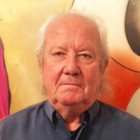
Rod Angood
Managing & Visual Director, Education Alchemists Ltd, United Kingdom
Rod Angood, BA, MBA. is MD & Principal Visioning Director at Educational Alchemists (UK). Previously he held senior roles as Executive Director of Information Technology & Information Systems at two UK universities. His first career was as a Royal Naval Officer in the Submarine Service. He brings extensive experience of leadership development, strategy & organisation.
Rod is now an established Graphic Artist providing ‘Artist in Residence’ services to Carpe Diem & Futuring workshops, supporting keynote speeches with real time artistic images,and educators with pictures & diagrams that explore concepts, ideas & models.
An opportunity to acquire concepts, skills, and practice in rethinking a core element of designing for online or blend, based on Carpe Diem learning design.
All the concepts are based on very well-rehearsed, evidence-based learning turned into a highly practical workshop.
Outcomes
- Learn how to use the best of researched evidence to create online and blended learning.
- Learn how to collaborate with others to plan units, modules, and programmes quickly and effectively.
- Acquire shareable, scalable frameworks and processes suitable for designing education experiences at all levels, professions and disciplines.
Agenda
- 10:30-11:00 Understanding of how to move from ‘emergency teaching’ to sustainable student-centred learning, from ‘aspiration’ to achieving quality learning.
- 11:00-11:30 Understanding and acquisition of knowledge of seminal concepts: 5 stage model, e-tivities, student engagement, equivalence.
- 11:30-13:00 Trials, feedback, and practice with others.
Audience
Professional developers, teachers and lecturers at all levels, corporate trainers, learning technologists, educational designers, librarians.
It is ideal for intermediate experience but also suitable for beginners and experienced.
Engineering Pedagogy Meets Online Education: Perspectives for TVET Specialists
Pre-Conference Workshop -
Afternoon Event
Date Wednesday, Nov 23 Time – Room Charlottenburg III Status: places available
Engineering Pedagogy Meets Online Education: Perspectives for TVET Specialists
Workshop leader

Thomas Koehler
Professor, Technische Universität Dresden
Chair Educational Technology (TU Dresden Vocational Education Institute 2005), studied Physics, Psychology, Sociology @ FSU Jena & Swarthmore College, Ph.D. Communications Psychology (FSU Jena 1999), Facultas Docendi Learning-Teaching Research & Multimedia Learning (Uni Potsdam 2006) -- Director CODIP Center for Open Digital Innovation and Participation, Chairman GMW Society of Media in Science, Board LFV-OS Leibniz Research Alliance Open Science -- www.tu-dresden.de/codip
The Workshop has been designed to comparatively map online education and engineering pedagogy. It is part of a transnational training program for Indonesian vocational education and higher education specialists and has been worked out between the TU Dresden Institute for Further and Continuous Education (TUD FaCE, Germany) and Directorate of Vocational Higher Education Institutions (DIKSI, Indonesia) Jakarta.
Agenda
- Trends in Online Education
- Digital Transformation in TVET
- Didactic Media: Sources and Distribution
Audience
Participants may be invited or request participation. Usually a background in either TVET, Engineering Education or EdTech is expected, with an international comparative profile.
Optimising the Use of ICT in Educational Innovation: An Open Discussion Based on the University of Twente’s Experiences
Pre-Conference Workshop - A1
A1 Afternoon Event
Date Wednesday, Nov 23 Time – Room Rook Price: 90.00 € Status: places available
Optimising the Use of ICT in Educational Innovation: An Open Discussion Based on the University of Twente’s Experiences
Workshop leader

Leon Cremonini
Senior Policy Advisor, University of Twente, Netherlands
Leon Cremonini is a Senior Policy Advisor at the University of Twente’s Strategy and Policy unit. Leon has extensive experience in policy and programme design, trainings, and stakeholder engagement, particularly in higher education and lifelong learning.
Over two decades, Leon has worked in Europe, the United States, Africa and South East Asia. He focuses mostly on higher education policy reform and lifelong learning, including the effects of technology on quality of learning and teaching, and flexibilization of education.
Links
Speakers

Frank Snels
University Information Manager , University of Twente, Netherlands
Frank Snels is an experienced digital business policy advisor and architect in the digital world. Frank has worked as a senior consultant and information manager in several large organisations where digital is essential. Recently, Frank made significant contributions to the digital strategy of the University of Twente and is responsible for the architectural aspects of education.
Currently, Frank is working on digital policies for education, together with Chris Rouwenhorst, Leon Cremoni and Koen de Pryck.
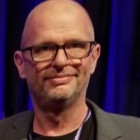
Koen DePryck
Head of Centre of Expertise in Learning and Teaching, University of Twente, Netherlands
Dr. DePryck is head of the Centre of Expertise in Learning and Teaching of the University of the Twente in the Netherlands. He is an internationally acknowledged expert in Challenge Based Learning, Research and Innovation in Higher Education and Adult Education. His record includes projects and consultancy in Europe, the US, Africa and the Caribbean, focusing on local and global capacity building for environmentally, technologically, socially, economically, culturally and institutionally sustainable and innovative education.
Links

Chris Rouwenhorst
Strategic Policy Advisor Education, University of Twente, Netherlands
Chris works as a strategic policy advisor education at the department of Strategy & Policy at the University of Twente.
He has a background in Educational Science & Technology and Teachers Professional Development. hris also works as a programme coordinator for the Centre for Engineering Education for the four technical Universities in the Netherlands.
This interactive session is about learning from the University of Twente's experiences on how to ensure long-term post-pandemic innovation in educational design and delivery through optimised use of ICT.
Background
The UT (University of Twente, the Netherlands) has the ambition to remain a frontrunner in educational innovation. A number of vision documents attest to this ambition, including a 2015 vision on ICT in education: our mission and vision "Shaping 2030", and the Digital Roadmap. The new integrated education vision, including a new Master Vision, will complement these documents in 2022.
However, an extensive engagement with stakeholders in 2021 concluded that the vision of the UT on the role of ICT educational innovation should be sharpened, especially in light of the experiences in the context of COVID-19. To address this challenge, we conducted an analysis of internal and external (vision and policy) documents and defined a number of assumptions on the future use of ICT.
These assumptions were vetted in a series of focus group discussions across the university, with bodies representing all stakeholders (students, teachers, e-learning experts, programme directors, the Centre of Expertise in Learning and Teaching, the Centre for Technology Enhanced Learning & Teaching etc.).
COVID-19 was an unpredicted and unprecedented emergency which led to an almost overnight switch to blended and synchronous hybrid delivery of education all over the world. This was an extraordinary testimony of the adaptability of higher education communities. Lecturers were often in the lead: they (re)designed their courses and decided how to deliver them. At the University of Twente, the prevalence of bottom-up initiatives supported the university's reputation of digital preparedness.
To this date, however, a number of areas of operation are not translating into institutional action, whilst others are still entirely unchartered. The former includes, for instance, learning analytics and open educational resources, the latter the application of virtual reality to education. This is concerning because these areas are instrumental in realising institutional, national and international policy priorities on education and science. Arguably, then, the pandemic has exposed and exacerbated the misalignment between guiding vision documents, both internal and external, and educational practices.
Overview
In this interactive session we want to share our experiences and lessons learned. We also want to learn from others and hear what the main uncertainties that have appeared in other university contexts are.
Our preliminary findings suggest that ICT is effective in educational delivery only if certain (pre-)conditions are met. A comprehensive notion of readiness that goes beyond acquisition of equipment, clarity across the entire university community in defining teaching modalities such as blended or hybrid, strategic investments, and an adaptive use of the campus are but some examples we will discuss.
Participants will gain deeper insights into the core question of how to bridge the gap between high-level and ambitious educational visions and daily educational practices through developing and adapting the use of ICT, thus promoting innovation and development of all our operations.Starting from the case we (the University of Twente) present, participants will discuss major uncertainties and assumptions that have emerged particularly as a result of the COVID-19pandemic. And in particular, regarding the balance between blended, synchronous hybrid, and physical delivery. Participants will get to know the current practices of our and other universities as well as the common dilemmas we face.
Outcomes
- Use the tools designed by the University of Twente to identify gaps between policy documents and educational practice.
- Critically appraise major uncertainties and assumptions that affect how teachers design and deliver education in the post-Covid world.
- Reflect on your own structures to balance the use of ICT with the campus environment, in order to foster an inclusive and socially connected learning environment.
- Identify how an optimised use and development of IT can contribute to the quality of learning and teaching in higher education.
Agenda
This session uses the case of the University of Twente to discuss the following questions:
- What are the conditions for successful delivery of education in a post-COVID world, in particular regarding the balance between blended, synchronous hybrid, and physical delivery?
- How can a university ensure educational practice and “guiding visions” reinforce each other rather than exist on parallel paths?3. How can a university optimise the use of ICT in educational delivery to ensure demands for new forms of learning and teaching are fully addressed?
Audience
- Policy advisors and institutional policy makers
- Education advisors
- Instructional designers
- Lecturers
Level: advanced
Making the Digital Transformation? Redesign the School!
Pre-Conference Workshop - A2
A2 Afternoon Event
Date Wednesday, Nov 23 Time – Room Charlottenburg I Price: 90.00 € Status: places available
Making the Digital Transformation? Redesign the School!
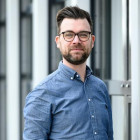
Frank van den Ende
Innovation Manager, Gilde Opleidingen, Netherlands
Frank van den Ende has broad experience in education as a teacher, innovation manager, designer, and educational scientist. Frank's mission is to find the right balance between the needs of learners, society, technology, and the professional field.
Frank is the author of the book "Redesign the school" and one of the founders of the Educational Design Expedition. Both focus on supporting teachers in taking ownership of their own educational design.
For decades we have been trying to give technology a solid place in our classrooms. But in many cases, this didn’t lead to a digital transformation of our education. Most of the time technology is only being added as an extra tool for teachers.
But what if we'd really want to make the digital transformation and include technology at the core of our education? We should stop treating it as an add-on to our traditional education and start from scratch by redesigning the school.
In this half-day workshop, we'll make a start with your redesign. Together with other participants in this workshop, you will go through the different phases of the redesign process. In mixed groups, you will share your experiences and thoughts, and enrich your view with the views of others, while working on hands-on steps.
Overview
We will start with the roots, defining the social function of the school. How do you want to position the school in today's society, and how do we involve the immediate environment and technology in this?
Next, we'll try to define learning. How do people learn? How does our brain process new information, and how do different learning theories relate to the use of technology?
After this, we'll have a look at how we organise the learning of our students, for example, in time. How can we design a learning environment that matches our vision of learning? Which roles do information technology systems play in this? How can we make our learning visible?
After the organisation of our learning, it's time for the execution of teaching. Here we look mainly at the role that teachers and students play in education. How can they learn from and with each other based on the use of activating didactics, feedback, and digital tools?
To conclude, we are going to focus on the implementation of the ideas. How do you ensure that you can share the insights gained in this workshop with your colleagues in a way that they can be implemented?
This half-day workshop is a rollercoaster ride which will include hands-on steps that you can also use in your own daily practice back home. So make sure to fasten up your seatbelts and come along for the ride!
Outcomes
- Learn a step-by-step approach on how to redesign your school and include technology at the core of your educational design.
- Obtain a first draft of a redesign with technology at the core of the design.
- Get insights into experiences and views of other participants who attend this workshop.
Agenda
- 14:00-14:10 Welcome and group forming
- 14:10-14:40 The roots: The position of the school in society
- 14:40-15:00 Definition of learning: How do the different learning theories relate to each other
- 15:00-15:30 Organisation of learning: How can online and offline learning reinforce each other? And how do you organise this?
- 15:30-16:00 Coffee break
- 16:00-16:30 Execution of learning: How can technology enhance learning by looking at our roots and definition of learning? What do we do in the physical and the online classroom?
- 16:30-16:50 Implementation: How can we implement this in our school? Where to start? Who to include?
- 16:50-17:00 Round up & evaluation
Audience
This workshop is interesting for everyone who is interested in educational design. Mainly from the sectors of workplace learning and training, education and research, NGOs and Civil Society.
This workshop is suitable for anybody. An intermediate level according to educational terminology is helpful, but not a must. During the workshop, all terminology will be explained in an understandable way if desired.
Creating your Future Through Images: Education 4.0 in your Paint and Fibre Pen Box!
Pre-Conference Workshop - A3
A3 Afternoon Event
Date Wednesday, Nov 23 Time – Room Koepenick I/II/III Price: 90.00 € Status: places available
Creating your Future Through Images: Education 4.0 in your Paint and Fibre Pen Box!
Workshop leader

Rod Angood
Managing & Visual Director, Education Alchemists Ltd, United Kingdom
Rod Angood, BA, MBA. is MD & Principal Visioning Director at Educational Alchemists (UK). Previously he held senior roles as Executive Director of Information Technology & Information Systems at two UK universities. His first career was as a Royal Naval Officer in the Submarine Service. He brings extensive experience of leadership development, strategy & organisation.
Rod is now an established Graphic Artist providing ‘Artist in Residence’ services to Carpe Diem & Futuring workshops, supporting keynote speeches with real time artistic images,and educators with pictures & diagrams that explore concepts, ideas & models.
Speaker

Gilly Salmon
CEO, Education Alchemists. Ltd, United Kingdom
Professor Salmon is the founder and CEO of Education Alchemists Ltd - formed around her life's work including Carpe Diem learning design, pedagogical transformation, online education, technology-enhanced teaching, the 5 stage model, e-tivities, and Education 4.0. Until recently Professor of Learning Transformation and pro-vice-chancellor at universities in the UK and Australia, she is now based in London with all workshops offered fully digitally and worldwide. She is a well-known keynote speaker and workshop leader. Her books E-moderating and E-tivities are considered seminal texts
Links
Through the presentation and examination of ‘Rich Pictures’ depicting possible work-based or future circumstances, this workshop will highlight visual imaging techniques, icons, and graphical tools that everyone can master.
No artistic talent is required– the images presented will all belong to a “Work in Progress” repository that the presenter has built from his work with clients from the Higher and Tertiary education sectors. Attendees will be given the opportunity to practice visualisation techniques based on scenarios – or bring your own plans!
Attendees will take away from the workshop an understanding of, and capability to use, images to represent work situations.
Outcomes
- A repertoire of techniques, icons and useful images for your use in the future.
- Examples of visual representations of complex organisational issues.
- An understanding of, and capability to use, images to represent work situations leading to actions.
Agenda
- Engaging your audience in collaborative visioning
- Translating words into images and building visions
- Promoting co-operation and collaboration through images
Audience
Planners, Academic and Staff Development, Learning Technologists, Teachers and Lecturers, Strategists and Future Thinkers.
Level: all are welcome but most useful for those who have never used imagery to replace words, those who have just begun their Education 4.0 visioning journey.
Designing Humanistic Learning Experiences for Education, Training and Product Development
Pre-Conference Workshop - A4
A4 Afternoon Event
Date Wednesday, Nov 23 Time – Room Chess Price: 90.00 € Status: fully booked
Designing Humanistic Learning Experiences for Education, Training and Product Development

Carol Damm
Head of Digital Education, Constructor University, Germany
Carol Damm leads the learning design team at Boston College and facilitates online program design for the wider Boston College community. She has more than 10 years experience in learning design in higher education and in online training. Carol has also taught online courses for instructional design and learning experience design programs at Boston College, UMASS Boston, and Brandeis.
Carol holds a MA in French, and MEd in Instructional Design & Technology, and is currently completing a PhD in Human Development and Learning at Lesley University. Her research interests focus on emotion science and identity formation as they relate to learning.

Melissa Kane
Senior Associate Director of Online Program Development, Brown University, United States of America
Melissa Kane is the senior associate director of online program development in the Sheridan Center for Teaching and Learning at Brown University. She provides strategic vision to the creation of online graduate degree programs and leads a cross-functional team in the development of priority online initiatives.
Under Melissa’s guidance, her team is the driver for course development of Brown’s first online Master of Public Health program for The School of Public Health. In her five years at Brown University, Melissa has held positions of increasing responsibility including lead instructional designer and associate director of learning design. She has designed and taught undergraduate and graduate courses at Johnson & Wales University and Brandeis University and has been the recipient of a university teaching award at Brandeis.
Most recently, she teaches Principles of Learning Experience Design (online) at Brandeis Graduate Professional Studies (GPS). Melissa provides learning experience design consultations and speaking engagements in both the public and private sectors of education and learning & development across the United States. She received her Ed.D. from Northeastern University, her M.S.Ed. from State University at New York in Oswego, and her B.A. from Colby-Sawyer College.
Links
In the wake of the global pandemic, the learning design field has become its own “Norman Door,” (a door with deficient functionality). Well-intentioned, learning design has become a generic set of principles that functions under the guise of being “learner-centered.”
By holding onto the research-informed cognitive learning theories and instructional design frameworks that we have depended on since the late-20th century, pandemic learning design has revealed cracks in the practice that have widened access and equity gaps across all sectors.
As the world enters a post-pandemic space, it is time to redefine the practice of learning design and draw from a broader base to move beyond the confines of foundational theories from learning science toward other multidisciplinary considerations.
This interactive workshop will first contextualise and define the role of the learner in each of the three major sectors, including education, EdTech and corporate learning and development.
Then, leaning on literature from other design fields, as well as emerging learning sciences, the workshop facilitators will engage participants in co-designing a new, integrated design framework tailored to each sector and that aim to redefine humanistic learner experiences in the 21st century.
Outcomes
- Contextualise evidence-informed learning design practices that can support or impede the learners’ experience.
- Review foundational theories from learning science through the lens of equity and access.
- Incorporate design theories from other disciplines to broaden our representation of learning experience design.
- Co-construct an integrated design framework for learning experience design for application in the education, EdTech and learning and development sectors.
Agenda
- 14:30-14:45 Introductions
- 14:45-15:15 Contextualise learners by sector
- 15:15-15:45 Explore humanistic design practices
- 15:45-16:15 Coffee break
- 16:15-16:45 Co-construct interdisciplinary design frameworks (by sector)
- 16:45-17:30 Participants' insights and closing remarks
Audience
- Learning designers in education, EdTech and Learning and Development
- Learning and Development leaders
- Educational leaders
- EdTech developers and designers
Level: any level
Applying and Translating Learning Design and Analytics Approaches in your Institution
Pre-Conference Workshop - A5
A5 Afternoon Event
Date Wednesday, Nov 23 Time – Room Check Price: free of charge Status: fully booked
Applying and Translating Learning Design and Analytics Approaches in your Institution
Workshop leader

Bart Rienties
Professor of Learning Analytics, Institute of Educational Technology at the Open University, UK, United Kingdom
Bart has over twenty years of experience in designing, researching and evaluating blended and online learning programmes in higher education and professional learning.
Bart is Professor of Learning Analytics and programme director of the learning analytics and learning design research programme at the Institute of Educational Technology at the Open University UK. As programme director he leads a group of academics who provide university-wide learning analytics and learning design solutions and conduct evidence-based research of how students and professionals learn. Over the last 20 years he has successfully led a range of institutional/national/European projects, and has received a range of awards for his educational innovation projects. These projects include a range of EU projects (AIT, Evaluate, LACE, LEAP, Teach 4.0), ESRC IDEAS, Leverhulme Open World Learning, and OFS Learning Gains, which focussed on learning analytics, evidence-based evaluations, and large-scale adoptions of innovation. Furthermore, he is programme lead of the learning analytics and learning design research theme within IET.
Bart conducts multi-disciplinary research on work-based and collaborative learning environments and focuses on the role of social interaction in learning, which is published in leading academic journals and books. His primary research interests are focussed on Learning Analytics, Professional Development, and the role of motivation in learning. Furthermore, Bart is interested in broader internationalisation aspects of higher education. He has published over 200 academic outputs, and is the 4th most cited author and contributor in Learning Analytics in the period 2011-2018 (Adeniji, 2019), the 5th most published author on internationalisation in the period 1900-2018 (Jing et al. 2020), the 7th most published author on social network analysis in social sciences in the period 1999-2018 (Su et al. 2020), and the 14th most published author on educational technology in the period 2015-2018 (West & Bodily, 2020).
He is Principal Fellow of the Higher Education Academy (HEA) and is visiting professor at University of Dundee.
Links
Speakers

Igor Balaban
Vice-Dean for Science, International Cooperation and Projects, University of Zagreb, Faculty of Organization and Informatics
Igor Balaban is Associate Professor at FOI and Head of Laboratory for advanced technologies in e-learning. He participated in several European and national projects, coordinated two of them (LLP, Erasmus+) and locally coordinated Horizon 2020 project.
He authored and co-authored 30+ scientific and professional papers and cooperates with European Commissions’ Joint Research Centre as an external expert for DigComOrg & DigCompEdu frameworks and SELFIE tool. He organized and conducted dozens of workshops, talked at several dozen conferences, and was invited speaker at some of them. He is also a reviewer for several highly respected journals such as Computers & Education, International Journal of ePortfolio and International Journal of Information Systems.
His main field of interest is technology supported learning with special focus on adaptivity and personalization in learning environments and digital transformation of educational organizations. He also has a traceable scientific record in assessing the successful implementation of information systems.

Blazenka Divjak
Full Professor, University of Zagreb, Faculty of Organization and Informatics, Croatia
Blaženka Divjak, PhD, Full Professor of Mathematics and Information Science at the University of Zagreb, Faculty of Organization and Informatics, served as Vice-Rector for students and study programs at the University of Zagreb (2010-2014) and was the Croatian Minister of Science and Education (2017-2020).
Her area of expertise besides mathematics includes learning design, e-learning, learning analytics, and strategic decision-making in higher education. She was a coordinator and a researcher in over 30 national and international projects and now coordinates two Erasmus + projects: "Relevant assessment and pedagogies for inclusive digital education", and "Innovating Learning Design in Higher Education".
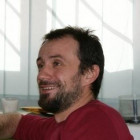
Darko Grabar
Head of Software Development Center at Faculty of Organization and Informatics, University of Zagreb, Croatia
Darko Grabar works at University of Zagreb, Faculty of Organization and Informatics as head of Software Development Centre (SDC). As head of SDC, his main responsibilities are to provide e-learning support, ICT support and custom software development, cooperation with SMEs and support to various ICT related projects. He has been involved in dozens of national and international projects, working as software developer or ICT and/or e-learning expert. Through his work, he is actively participating in international Open Source community and since 2009 he is member of HrOpen (Croatian Society for Open Systems and Internet), currently in role of vice president.
This interactive workshop delivered by the University of Zagreb, Faculty of Organisation and Informatics (UZ) and the Open University UK (OU) will build on two large-scale implementations of learning design and learning analytics, and how you could potentially implement similar approaches in your institution.
The OU has been implementing learning design for over 15 years as a structured design, specification, and review process for blended and online courses. The learning design is focused on "what students do" as part of their learning, rather than on "what teachers do" or on what will be taught.
Building on this work, UZ has recently developed the Balanced Design Planning (BDP) tool specifically for educators working in hybrid and blended contexts. The tool is more focussed on intended learning outcomes and automated learning analytics and is currently developed and tested with 60+ practitioners from ten institutions at nine countries as part of three European projects (eDesk, Teach4EDU, and RAPIDE), and is publicly available for other institutions to use for free.
It has been shown by studies conducted by OU and UZ that when these learning design (LD) approaches are used, they help educators to make real-time informed decisions based on learning analytics (LA) and improve the predictive modelling of student behaviour.
Beyond the direct impact of learning design on how the OU and UZ and its 7000+ academics and educators use learning analytics on a daily basis, the LD approach has been used by 2000+ university educators over a dozen countries, including Belarus, China, EU countries, Kenya, South Africa, and the UK.
Outcomes
- Develop your own learning design and learning analytics approaches and/or to work with other educators to design a joint course and share it with other peers/students based on hands-on experiences with the Balanced Design Planning tool.
- Use lessons learned from both approaches from a range of European institutions in your own teaching and learning practices.
- Apply and translate these learning design and learning analytics approaches into your own institution based on provided good practices and use of the LD and LA concepts and tools.
Agenda
In this session we will aim to provide the following structure, roughly one hour each:
- 14:00-15:00: Evidence-based principles of learning design and learning analytics and how to implement them in your institution
- 15:00-16:00: Hands-on working with the Balanced Design Planning tool to design your own course/qualification or to collaboratively work with others on learning design and share the design with students
- 16:00-17:00 How to implement learning design and learning analytics effectively in your institution and/or in your practice as an educator
Audience
- HE educators who teach in blended, hybrid and online settings
- HE instructional designers/learning designers
- HE managers and decision makers HE leaders
Level: intermediate (i.e., you need to have worked in HE for several years, but you do not need any learning analytics experience)
DistancE-Learning in Europe – Exchange of Experience and Knowledge Sharing Use of Data in Education
Pre-Conference Workshop - A6
A6 Afternoon Event
Date Wednesday, Nov 23 Time – Room Schoeneberg I/II/III Price: free of charge Status: places available
DistancE-Learning in Europe – Exchange of Experience and Knowledge Sharing Use of Data in Education
Workshop leader

Jens Greefe
Director of Studies, EADL European Association for Distance Learning, Germany
Jens Greefe is the Director of Studies at the ILS in Hamburg, Germanys biggest distance learning provider, educating app. 70.000 students in more than 300 distance courses. He is responsible for the development and the organization of the course programs and for the quality management of the ILS
He holds a diploma in Economics and is chairman of the Research & Development Committee of EADL since 2014. From 2012 until 2020 Jens Greefe was Vice president of the german association for distance learning “Bundesverband der Fernstudienanbieter” formerly named “Forum Distance Learning”.
Since 2021 he is member of the Global Advisory Board of the OEB Online Educa Berlin
Since 2022 Jens Greefe is member of the board of "Bundesverband der Fernstudienanbieter".
Speakers

Oliver Nahm
Scientific Officer, Federal Institute for Vocational Education and Training - Bundesinstitut für berufliche Bildung (BIBB), Germany
Oliver Nahm leads the project “Learning Analytics – Distance Learning” at the Federal Institute for Vocational Education and Training (BIBB), which aims to assess the importance of Learning Analytics for vocational distance learning courses, as well as further its implementation.
He has worked as a teacher and trainer for many years, designing and teaching courses both on- and offline. His focus is on a holistic and flexible approach to education, utilizing data, while keeping the focus on the human element.

Niels Pinkwart
Scientific Director of the Educational Technology Lab, German Research Center for Artificial Intelligence (DFKI), Germany
Prof. Dr. Niels Pinkwart is Vice President for Academic Affairs at the Humboldt-Universität zu Berlin. He is also Scientific Director of the Research Department Educational Technology Lab at DFKI Berlin.
His research interests lie at the intersection of Computer Science, Education, and Organizational/Societal Change. Prof. Pinkwart has authored more than 250 peer reviewed publications. He is a regular member of a variety of program committees of scientific conferences and currently acts as associate editor of the International Journal of Artificial Intelligence in Education and as member of the editorial boards of the Journal of Educational Data Mining.
Links
Distance Learning Providers today are processing large amounts of participants’ data to optimise their services and provide the best possible support to their learners. It is expected that learning analytic tools will have an important impact on the learning environments of the future.
This workshop will give you some insights into the latest learning analytics from a scientific point of view and show some best practices in vocational education.
Outcomes
- Gain information about learning analytic methods and tools.
- Receive knowledge of best practice in learning analytics.
- Expand networks and supporting the sharing of knowledge in Distance Education.
Agenda
- 15:00 Welcome and Introduction
European Association for Distance Learning (EADL)
Bundesverband der Fernstudienanbieter E.V.
Bundesinstitut für Berufsbildung (BIBB) - 15:15 Project Presentation - Assessing and Furthering the Role of Learning Analytics in Vocational Distance Learning
Dr. Oliver Nahm, Bundesinstitut für Berufsbildung (BIBB) - 15:30 Learning Analytics – The Scientific Point of View
Prof. Dr. Niels Pinkwart, Humboldt Universität zu Berlin, DE - 16:15 Coffee Break – Time for Networking
- 16:30 Learning Analytics – Best Practices in The Netherlands
Jaapjan Vroom, Deltion College, NL
Audience
Level: any level
This workshop will give the most benefit to adult learning professionals who work in the field of vocational education and training, but the topic will attract researchers and HR-specialists as well.
A7 Afternoon Event
Date Wednesday, Nov 23 Time – Room Tiergarten I/II/III Price: free of charge Status: places available
Accelerating Digital Education
Workshop leader

Peter Fagerström
Founder & Executive Chairman, Educraftor, Finland
Founder and Executive Chairman of Educraftor, education innovation consultancy (https://educraftor.com) former and current clients are: the Ministry of Education and culture in Finland, Ministry of Education and Research in Estonia, Foundation Innove Estonia, National Agency of Education in Finland, 40% of all Finnish Teacher Training Schools (Universities), Erasmus+ Innovation projects, the European Commission, Microsoft (Education), startups, municipalities, cities and UNESCO Education.
Educraftor drives the #evolutionofeducation as its core mission through #craftogogy and the Educraftor Learning Ecosystem Framework.
Co-Founder and CEO
Teach Millions, a learning bazaar with 60+ portfolio companies (https://teachmillions.org) Teach Millions is based on 3-pillars: 1. donations and support for education during the pandemic, 2. development aid, 3. a commercial marketplace. Part of the UNESCO Global Education coalition, supporting institutions, especially schools, across the globe with education technology and teacher training solutions. 18 regional and global partnerships.
Founding member and Advisor to the Board
Edtech Finland, the first edtech industry association in Finland (https://edtechfinland.com).
Co-Chair
Nordic Edtech Forum N8, a cross border Nordic (5) Baltic (3), the new Nordics (8), edtech industry association with 140+ companies across all education and learning segments (https://nordicedtechforum.org).
Education Lead
the Global Help Desk, a PCI (People Centered Internet) initiative, connectivity and education innovation ecosystems implementation on a global scale.
Founder and Honorary Member
HUB Turku, co-working and makerspace (1000m2) in Turku, Finland. HUB Turku is located in the middle of Turku Old town on the oldest street still existing and only half a block from the river. It’s an regional innovation platform bringing together everything from robotics and a coding school to graphics freelancers, musicians and psychologists.
Building and orchestrating purpose driven innovation and learning ecosystems across the globe, focusing on large scale strategic and systematic change.
As an experienced consultant for regional development and management systems as well as a coach for team learning, blended learning, phenomenon based learning, education for sustainable development, entrepreneurship education and digitalisation as well as using ICT as tools for and to accelerate learning and innovation.
He implements, together with his team innovation and learning processes, in local and regional organisations as well as in networks, helping them become learning organisations and purpose driven innovation and learning ecosystems.
Peter is a serial venturepreneur (4 companies, 3 NGOs), he has also started a startup program at a university for both students and staff, co-chaired the executive board for a spearhead project for the Ministry of Education in Finland focusing on integrated entrepreneurship education, and is the initiator of three (3) startup hubs.
He has a phenomenal ability to perceive large, complex systems, and finds connections where none are apparent, enabling situations where the sum of two parts are greater than simple addition. He can work on a vision no matter how big and is not afraid to challenge conventional mindsets and the way we work, he brings positive disruption into any process.
Peter's vision is to enable all human beings to fulfil their dreams.
He does this by piecing together learning ecosystems through a plethora of projects with the end goal that together they will make possible an active learning society.
Such a society would be based on dialogue and learning and would support growth, innovation and maturity of all humanity. Learning, earning and thriving together we could easily solve the challenges we face as a human race.
Links
Speakers

Maria Rahamägi
CEO & Founder, Edumus Education OÜ, Estonia
Founder and CEO of Edumus School. Under his leadership, Edumus has grown into a well-known Estonian educational technology start-up company, which started operations in Ukraine last year and plans to expand the model of sending specialist teachers to other foreign countries in the coming years.
Maria is a founding member of EdTech Estonia and she has co-led the civic initiative "Every student online" during corona lockdowns, "Shkola Nadii" to each Ukrainian refugees, organized educational technology hacks in cooperation with EdTech Estonia, participated in the Estonian Ministry of Education working groups in and has been nominated for several entrepreneurship awards.
This pre-conference event will introduce the European Digital Education Hub (EDEH) and its Accelerator Program: what are they for, who are they serving and how, and what is the desired impact of these initiatives in different sectors of education.
Together with European Schoolnet, Educraftor is designing and implementing the accelerator program, and supporting the selected innovative solutions to be tested and scaled across Europe.
The Accelerator Program is equity-free and designed to serve all education sectors and invites innovations also from an early stage of development, enabling a grassroots level innovation in education.
The first cohort will run from October to December 2022 and will be around the following themes:
- Underserved and vulnerable groups
- Engagement in (digital) education
- 21st Century skills
These themes aim to address SDGs 4 and 17 and provide forward-looking solutions to improve sustainability in a wider/holistic view.
Outcomes
- Get a hands-on experience of the most recently developed digital education solutions.
- Learn to give feedback so that there will be a positive effect in which direction the prototypes will be further developed.
- Learn to empathise with your own learning community and learning environment and to envision such a prototype being used (or not) by your respective community members; why, how, what.
Agenda
After introducing the European Digital Education Hub and the Accelerator Program, the audience will have the possibility to both hear and see, and also experience or "play with" 2–3 selected prototypes (“best in class”) from the programme.
In this way, the session will be interactive:
- Serving the prototypes, who will get useful feedback from the live audience (this will be set up as an easy-to-do process)
- Serving the audience, who will get a hands-on experience of the most recently developed digital education solutions and who will also have the possibility to effect in which direction they will be further developed.
We will set this up as an easy-to-do process and design the interactive points and focus, so that the interaction and learning will be meaningful for both parties.
Audience
Different stakeholders in education: educators, researchers, innovators, leadership, investors; addressing all education sectors since the EDEH is designed to support all education sectors.
Level: intermediate


